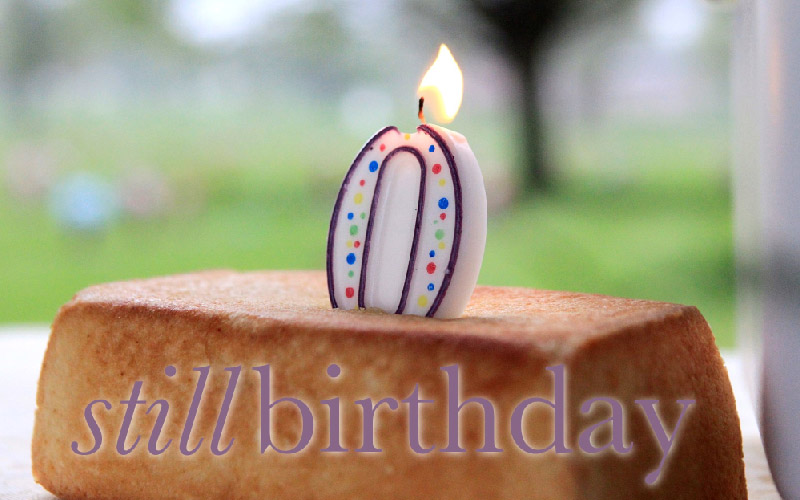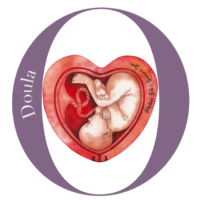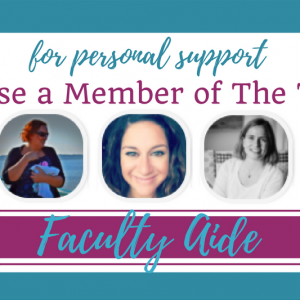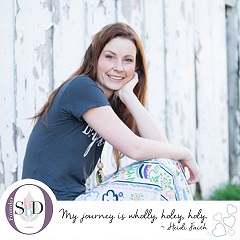Mothers who have endured pregnancy losses make up a demographic that is largely misunderstood and as a consequence, poorly supported.
Within this demographic, are different, smaller groups. These groups have some very important things in common, but there are very important distinctions between them as well; because pregnancy loss as an entire demographic is so poorly supported, the lines between the groups within it can be magnified when they ought not be, and they can be blurred or altogether forgotten when they shouldn’t be.
To better equip others in supporting pregnancy loss mothers, stillbirthday, through our many resources and programs, introduces you to these different groups, why they are different, and what their differing – and similar – needs are.
This article discusses home stillbirth – mothers who have given birth at home to their stillborn babies. This group of mothers is shared among three subsets:
Planned Homebirth – Known Fatal Diagnosis/Known Stillbirth
These are mothers who learn during their pregnancies that their babies have a diagnosis that is incompatible with life, or who were planning a homebirth but at some point in pregnancy, the baby died. These mothers choose to birth their babies at home and coordinate medical and legal aspects to do so. The second portion of our Home Stillbirth planning article gives information to mothers and midwives on how to utilize this birthing option. This option is under-utilized as of yet; the legal process can frustrate homebirth planning for a known stillbirth or fatal diagnosis, and so if a mother is utilizing midwifery care and planning on a homebirth, her care may be transferred to a hospital prior to, during or after the birth. To make things simpler, if a mother has hired a midwife with the intent of a planned homebirth, regardless of transfer of care, we refer to it in this article as a home stillbirth.
Unexpected Homebirth – Unexpected Stillbirth
The first portion of our Home Stillbirth article gives quick information for this emergency situation.
Planned Homebirth – Unexpected Stillbirth
This subset is arguably the most controversial and difficult to discuss among homebirth midwives and mothers, but is the one we will address in particular length here. First, there are some basic things to know:
Homebirth is on the Rise

The National Center for Health Statistics, part of the CDC (Centers for Disease Control and Prevention) issued a report showing that between 2004 and 2009 the number of homebirths increased by 29%, a rise of 0.56% in 2004, to 0.72% in 2009. In 2009, a total of 29,650 homebirths were reported in the United States. While these look like big numbers, however, the overall number of American women giving birth at home is on the rise, but still low: in 2004 only 0.56% of births were at home, rising to 0.72% in 2009.
62% of these homebirths reported in 2009 occurred in the presence of midwives. 19% of home births had a certified nurse present, and 43% of home births were supervised by other types of midwives, for example, direct-entry midwives or certified professional midwives. The study reports that a mere 5% of home births had taken place in the presence of doctors, probably because the majority of them occurred without notice. Researchers have only just began analyzing data on this topic in 1989. The rise in homebirths is attributed to many plausible factors, including the rise in Cesarean births and mothers seeking to avoid a highly medicalized birth if it can be safely avoided.
Midwifery, and CPM in Particular is also on the rise
(visit pushformidwives.org for more)
There are Different Kinds of Midwives
For a number of reasons, midwives in the United States vary in their expertise, their education, their credentials, their legal status and the place where they can help a mother give birth. Knowing about the different kinds of midwives can help you be an informed consumer and aid you in finding and choosing a midwife.
Because Homebirth is on the Rise – so, too, is Unexpected Home Stillbirth
Each year in the United States, approximately 26,000 mothers give birth to stillborn babies. With homebirth on the rise, it would simply make sense that some of these numbers will begin to move into homebirth statistics.
Although Homebirth is on the Rise, it is a Small Rise, and so Support for Home Stillbirth is Scarce
Remember this from the homebirth chart above: the overall number of American women giving birth at home is on the rise, but still low: in 2004 only 0.56% of births were at home, rising to 0.72% in 2009. Stillbirthday blazes the trail and provides support now to these mothers and midwives.
Within the ‘Planned Homebirth – Unexpected Stillbirth’ subset, there is another divide
As if these subsets are not already at horrendous disadvantages for support and care, this particular subset is divided even further. This is, in part, what makes planning and confirmimg your homebirth decision, so important. When you find a provider to support you during your birth – whether it is a midwife or an obstetrician – it is important to know how they will support you in the event of a stillbirth. Here is this next divide:
Planned Homebirth – Unexpected Stillbirth – No Negligence/Unpreventable
We are down to an extremely small demographic. This group as a whole finds a small amount of comfort in the truth that “stillbirths happen in hospitals too.” This is also the group within pregnancy loss that we can know for certain will follow the trends of homebirth – as homebirth continues to rise, it is a certainty that this group will rise with it. Even so, this group is still very unsupported in many important aspects of their grief (the interviews below can shed a little light on this, although it comes from a mother who had a negligent midwife). We all would hope that any unexpected stillbirth would be in the category of “no negligence”, but this is just not the case. As healing as the sentiment “stillbirths happen in hospitals too” may be for this group, it is strikingly offensive and glaringly minimizing to the next group of mothers, which is just one example of the differences between these groups and why understanding each of them is so very important.
Planned Homebirth – Unexpected Stillbirth – Midwife Negligence/Preventable
We have begun with a growing but small number of mothers who choose homebirth, to those who experience an unexpected stillbirth, which is also a very small but growing number, and now down to the isolated group of mothers who find fault with their midwives relating directly or indirectly to the deaths of their infants. It is important for this number to remain low. But because it is so low, those who find themselves in this group are therefore the least understood, and as a result, the least supported.
Stillbirthday’s Official Statement: all mothers, and all midwives, deserve grief support, whether there is negligence involved in the stillbirth or not.

Stillbirthday obtained two exclusive interviews with one mother who found negligence with her midwife, and one midwife who separately admits she might have responded differently to one of her clients, prior to the stillbirth – these two do not know each other. Both share intimate details of their experiences with us, so that we can all glean wisdom from their darkest of hours and the haunting journey to healing afterward.
Stillbirthday asks the mother: The search for physical reasons/causes. What has that been like for you? Did you want to find any other reason other than negligence? Why or why not? Have you been “satisfied” with the “cause of death”?
Mother: When she initially passed away, I figured she had some sort of incompatibility with life defect. When my midwife gave us the newborn exam paper, we noticed several inconsistencies and went to the Detective about them. I knew a “midwife” in PA who was discussing our loss and the day of the funeral, my midwife was waiting on our steps when he ran home between the burial and luncheon. She was angry that other midwives were discussing this and the possibility of her being arrested. I did get angry with her. She would show up here and beg for me to not be angry. I remember her discussing her cancer and saying God sometimes does these things and reminding me how much she loved me and our family. Then, we got the death certificate. I called the Medical Examiner and discussed it with them. That began my descent into hell. I still frequently read things hoping that maybe, just maybe, that could be it instead. I feel that, if there had been a non-preventable cause of death, it would of been easier to accept, if that makes sense.
Stillbirthday asks the midwife: The search for physical reasons/causes. What has that been like for you? Did you want to find any other reason other than negligence? Why or why not? Have you been “satisfied” with the “cause of death”?
Midwife: It is a very strange dichotomy. I of course never wanted to have fault found against my care, but I simultaneously of course never wanted the mother to live with the thought that there was something she did or that the death of her son was somehow something she could have prevented. I am a protector of birth. I want to protect the mother, and the baby. “These things just happen” seems so trite and so minimizing. In my situation, I believe it is important to point out that days passed before the mother expressed concern in a decrease of fetal movement. Should the mother have called me sooner? Should I have called her? How do we live with what happened? How do we assimilate this? Is there fault–real liability–involved? In this mother’s case there just wasn’t, but that doesn’t stop me from wondering. Even now, years later, I still wonder. I imagine that the mother does as well.
Stillbirthday asks the mother: How did your family respond to the death of your daughter?
Mother: Our families have been great. At first, my mother in law was angry with us. My brother blamed me. But everyone has come around and are all very supportive.
Stillbirthday asks the midwife: How do your loved ones respond when you have a professional loss?
Midwife: I was very private about my feelings regarding this mother and her experience, which has been my only encounter with stillbirth. I only shared my feelings with a couple of close colleagues. One sent me a card; they both offered emotional support and helped me to honestly express my feelings without having to worry about it being misinterpreted, which was something I did fear. My family was very supportive throughout. I knew that this wasn’t my fault, even though a part of me maybe even almost wanted it to be–it seemed like it would make better sense, if there was someone to blame. A part of me was also angry that the mother didn’t call me sooner. It wasn’t her fault though, either. This was tragic, and this was her tragedy, even though it greatly impacted me as well.
Stillbirthday asks the mother: What can moms possibly expect from their loved ones, and do you have any advice for them facing family after a homebirth loss?
Mother: Expect to deal with those who were against your decision to begin with, to be angry and possibly blame you. When you are facing that, turn to people who will support you regardless, giving you a safe grieving environment.
Stillbirthday asks the mother: Did you seek legal counsel regarding your midwife’s negligence? What is that process like? What legal support do moms have? Does seeking legal support help or interfere with the grieving process?
Mother: We did seek legal counsel. However, we were turned away repeatedly due to the lack of insurance our midwife had. Honestly, most mothers, depending upon type of midwife, will either have some recourse legally or none at all. If your midwife does not carry insurance, you really don’t stand a chance.
Stillbirthday asks the mother: The search for spiritual reasons/causes. What has that been like for you? Did you feel punished? Did you feel rejected or ignored by God? Did you want to retaliate against God? How have your feelings toward God evolved?
Mother: At first, I tried finding a reason why God would allow this to happen. We prayed and prayed and prayed. I would read books on grief and all they did was infuriate me. God could not give me an answer. That was all I wanted, just an answer. Yes, I felt punished for being so cocky and confident and so self-righteous. In time, I began relying on my Christian friends to help me through this and after a bit, I wanted nothing to do with Christianity at all. I began practicing an alternative religion then just couldn’t do it anymore. Slowly, I began getting back to who I was in my faith. Is it as strong as it use to be? Not yet, but I’m working on it. I still want answers, but I don’t know if there ever will be a good enough answer. I just have to take this and use it for good, make something beautiful come out of it.
Stillbirthday asks the mother: How did you feel about yourself as a mother during the initial grief process? Did the death of your daughter challenge your belief in yourself as a mother? Wife? Do you have any advice for moms facing guilt/ blaming themselves for choosing to homebirth?
Mother: I felt like I failed as a mother, totally and completely failed. However, now, I feel that I am a great mother and even if she isn’t here, I’m a great mother to her. I, actually we as a family, WE keep her memory alive. We still spoil the crap out of her. We still talk about her. As a wife, I was scared to death that my husband would resent me for the choices I made. He never has and so I haven’t had to question myself as his wife. As for advice, I am still dealing with the guilt/blame aspect of grief. I know I didn’t choose to have the midwife mess up, but I still chose her. I don’t know what it would take in order to alleviate the guilt/blame. I want other moms to know it’s normal and it’s ok to talk about.
Stillbirthday asks the midwife: How did you feel about yourself as a midwife during the initial grief process? Did your experience with stillbirth challenge your belief in yourself as a midwife? Do you have any advice for midwives facing guilt/ blaming themselves or the mother?
Midwife: I was very shaken. It was emotionally demanding, trying to soothe my own soul, while loving this mother through her many questions, fears, feelings, while additionally helping her transfer her care to a hospital, and helping her prepare to meet her stillborn son. The enormity of the task is too difficult to even put into words. I was afraid. I was stuck in fear, and my fear shaped the support I provided. It shaped the support I provided for quite a few mothers after her, as well. I became almost obsessed with ensuring that mothers really understood about fetal kick counts, and that they understand that they can call me, for anything, anytime. What is not the norm had such an enormous impact on me that, for a time, I perceived it as the norm. My advice is twofold: establish trusting relationships with peers and colleagues. Have someone you can run to and say, “I am scared out of my mind. I am horrified that this precious child is gone. How do I really–I mean,how do I REALLY–provide what this mother needs?” You need to be supported. Second, talk about death (maternal and fetal). Stillbirthday is doing an enormous thing by talking about something that is so very taboo. The truth is, we want it to be taboo, I think. We don’t want to talk about it. But, we just have to.
Stillbirthday asks the mother: What were the first days like?
Mother: I remember bits and pieces, so they were pretty much a fog. I had people helping us with the house and kids, but who it was and who had which kids where, I don’t remember. I remember going to the funeral home and doing ok until the director came in the room showing us the casket our baby would be put into. Never, in a million years, do I think I would be putting my newborn baby in a casket. That wasn’t what was suppose to happen. I remember taking in the burial outfit and how kind and warm the receptionist was. That has stayed with me. She told me she could feel The Lord in the room. That next day, we got to go see our daughter and do her footprints, both of us trying to pretend that we didn’t see the autopsy scars on her body. The next day, I remember getting angry at people who were arriving early because that was our time. I remember my brother in laws mother coming and I remember thinking, “she doesn’t know me and still came”. I remember being almost carried out of the funeral home after having to say goodbye. Then I remember having to leave her in the cemetery with the director. I slept when I was drugged up. When my husband returned to work, he made sure I always had a babysitter for those first few weeks.
Stillbirthday asks the mother: Do you think that a homebirth loss has a different initial grief reaction than hospital birth?
Mother: I do and I don’t. I think it would depend upon the cause of death. Having friends with preventable hospital losses, their feelings often seem to mirror mine.
Stillbirthday asks the midwife: Do you think that a homebirth loss has a different initial grief reaction for the mother than hospital birth?
Midwife: Yes, when it is an unexpected loss, absolutely. I believe the mother is riddled with guilt, shame, and is haunted by horror and regret. I believe this would be especially so if the baby died during the planned homebirth, which wasn’t my experience and so I can only speculate. In a hospital birth, there seems to be more certainty, whether this is purely illusion or not. The highly clinical environment gives the mother the sense that everyone around her is in control and knows everything. It offers her a certain amount of detachment from the processing, I think. She can be told what happened, and spend her grief working on accepting that or not, whereas with an unexpected home stillbirth, she is put into a different position of being one, likely feeling like the only one, really trying to make sense of what happened.
Stillbirthday asks the mother: Were there daily reminders that a mom might not have in a hospital birth, that played into your emotional response or grief?
Mother: Yes, my home was a huge reminder. Walking into the bathroom, I could still see the medics sitting with me as I sat in the tub. I could remember the “exam” my midwife did in my bedroom. I took pictures of the kids with their sister in the living room. I remembered the medics running to the door and taking her out of my arms to the ambulance. Everything about that house was a reminder. I ended up redoing the house afterwards and then we just moved. When I drive by that house, it’s one huge flashback.
Stillbirthday asks the mother: Did you feel professionally supported in your grief in the early days?
Mother: I did. My doctor immediately put me on medication and let me talk.
Stillbirthday asks the midwife: Did you feel professionally supported in your grief in the early days?
Midwife: As I said earlier, I felt enormous fear. I reached out to two of my sister colleagues, and received support from them, and from my family. I didn’t receive support from any additional sources, although now in hindsight I believe I should have utilized additional support to really help me process my fear. If it was a situation where the mother held me accountable for the death of her son, I might have felt forced to share my experience more publicly just so I’d know what to do.
Stillbirthday asks the midwife: Did you feel that you adequately supported the mother in her grief in the early days?
Midwife: I want other midwives to know that we can’t fully support a mother in her grief. She needs a village of caring, heartfelt souls around her. Her physical care needs tending to, but she also needs emotional and spiritual support. While I say this, it is equally important not to neglect the mother. In our fear, and our own emotions, we can dread facing the mother again or being reminded of what is already haunting us. We need to continue to provide care, and we need to enlist the help, discernment, wisdom and love of others who are connected to the mother. We also need to be careful not to take support away from the mother to fulfill our own needs. I heard once of a midwife, who was at that point acting as the doula, chatting away frantically at the hospital chaplain when he was there to speak with the mother. We would be wise to imagine how our reaching for support is interpreted by the mother, whether there is liability, raising funds for legal aid, or anything else involved, because it can quickly appear as if it is us versus them, when that is by far the last impression we want to send. We are for the mother.
Stillbirthday asks the mother: When a mother has a home stillbirth, where does she turn for immediate postpartum care, particularly if the midwife was negligent during the birth? Who gives a postpartum depression screening (EPDS) or follow up care for the mother?
Mother: If there is a rush to the hospital, normally the doctors/nurses will offer to check mom out. I did not receive a PPD screen and had no OB followup care. When I saw my primary care doctor, like I said he gave me meds and let me talk, but I ended up getting worse and did attempt to put my van into a tree. He just increased the medication and I threw it out.
Stillbirthday asks the mother: How did you feel about your midwife during the initial grief process? Could you walk me through the transition – when and how did it happen – when you went from trusting your midwife to realizing that there was negligence? What feelings did you have?
Mother: At first, I did care about her and was trying to find a reason that she died. I did run a few by her and she was pretty ok with it. However, the lies and covering her behind began very early. My daughter was born/died on Thursday and Monday morning before the funeral is when my husband contacted the detective about the newborn exam paper. Finding out she lied was a kick in the teeth. We ended up with three different copies of the exam. Then, she was constantly emailing wanting to do this or that together and wondering if we had gotten anything back from the Coroner. Once we got the death certificate, I asked for my records, which were also falsified. You can see where she crossed things out and wrote in something new. When she learned we were trying to have a peer review done, she began emailing me, only being more persistent this time. I was furious that I trusted her, she failed, yet she was trying to manipulate us into standing by her and just accepting our daughter’s death. Learning her history and knowing that deaths/injuries are still occurring makes me see red.
Stillbirthday asks the mother: What was it like when you first shared your experience with those who support homebirth – those who encouraged you in your path to homebirth? Did you expect the reactions you received from others?
Mother: They were supportive until I began speaking out after learning that this was due to negligence. They attacked me. I didn’t know what I was talking about. Sorry my baby died, but babies die in hospitals too. I had no right to project my feelings on to others, etc. It was like Dr Jekyl/Mr Hyde, as soon as I said one word not supportive of homebirth or midwives. I don’t think I expected anger towards me. I did nothing wrong, yet, I have born the brunt of this. I hoped my “friends” would be angry that this midwife failed us. I hoped they would want to see some sort of accountability and see this not continuing to happen. I expected support and did not receive it.
Stillbirthday asks the mother: When other mothers share about positive home births, with live babies as the outcome, how does that make you feel?
Mother: I remember having a positive homebirth with a living baby, so I was in their shoes once. I hope, I hope, they never end up in our shoes. When these are risky births, I think to myself that they got lucky. Sometimes, I do wonder why they get a living baby and I didn’t. I did everything right and lost her.
Stillbirthday asks the mother: When other mothers share about homebirth that resulted in unexpected stillbirth, and they used your midwife, and they do not find your midwife accountable, how does that make you feel?
Mother: It does make me angry. I feel that not examining the entire labor/birth and the midwife’s actions just encourages these midwives to continue on causing more babies to die. It’s a real blow to find out that others allowed a midwife to continue and supported her in the losses or other infants under their watch. Part of me, almost wants to hold the parents, that allowed my midwife to walk away from their babies deaths, accountable. I don’t understand how anyone can let someone just walk away from accountability in their role in the death of a baby. It’s inexcusable. I have tried to get the word out, but I still feel responsible each time I learn about a death or injury under my midwife’s watch.
Stillbirthday asks the mother: When other mothers share about homebirth that resulted in unexpected stillbirth, and they used another midwife (not yours), and they do not find theirrmidwife accountable, does that become a factor to you in any way? Do you doubt her? Does it make you wonder? Does that become a factor in reaching out to her?
Mother: There have been a few times where I have wondered but kept my thoughts to myself and just helped the mother. I have only even encountered a few women who had blatant negligence involved, and honestly, it makes me want to hit my head into a brick wall.
Stillbirthday asks the mother: When other mothers share about hospital stillbirth, and that they find their OB at fault, how does that make you feel? Do you feel that these mothers have better support than mothers who find their homebirth midwives at fault? Why or why not?
Mother: I can sympathize with them and I do, totally. If their OB/nurses/midwife in the hospital messed up, I want to see some accountability and I try to give them the support they need to feel free to speak out. I don’t want them silenced. Their stories and losses are just as important as mine. I do feel that they are better supported than homebirth loss mothers, though. I feel this way because the homebirth/midwifery community behaves as if midwives can do no wrong. I’ve seen them supported unconditionally, meals made for them, rallies in their support, pledges of money, etc. We get NOTHING, yet it was our baby lost.
Stillbirthday asks the midwife: When mothers share about hospital stillbirth, and that they find their OB at fault, how does that make you feel? Do you feel that these mothers have better support than mothers who find their homebirth midwives at fault? Why or why not?
Midwife: Obviously, I certainly don’t want stillbirth to occur anywhere. I don’t think that mothers are very well supported wherever there is a stillbirth, and whether there is liability involved or not. I would like to think that midwifery care provides more support for these mothers than obstetrical care, but that doesn’t seem to be the case. There seems to be consistant support in hospitals: hugs, pamphlets, chaplains, some have staff on hand just for bereavement, and this is all whether there is negligence by the OB or not. When the death occurs under a midwife’s care, I think the guard of fear automatically goes up for the midwife, whether there is negligence involved or not. The midwife is more intimately connected to the mother than the OB is, so the loss is more intimate. It’s personal. The midwife is grieving, too, and I think there is a fear of interrupting one’s grieving process to support the needs of the other.
Stillbirthday asks the mother: In what ways has your perspective changed through your years of grieving?
Mother: I used to hate all homebirth and hate all midwives. Now, I’m fine with homebirth, but only with a CNM as their educations and training are sufficient. The CPM/lay midwife education/training here is highly inadequate. There is no professional behavior in the lay midwife world, at least not as a whole. I feel that things could be so much better for mothers and babies here if standards actually existed within the community. I still get tired of the same crappy comments and wish people would truly open their eyes to see the harm they inflict upon us. I’m even more resolved to change things. These years have shown me what I am working towards and helped instill such a passion and fire within me. I want to be able to forgive myself. I want to be rid of the guilt I carry. I have mothers ask me how they can help themselves deal with that feeling and I’m clueless. My determination began with speaking out against ALL midwives and all homebirth. Now, it’s towards ensuring safety. I do NOT want other women to walk this road. I wouldn’t wish this on my own worst enemy and if I can help prevent one loss, just one, then this fight is worth it. As for expressing and utilizing my grief, I guess my anger and passion does help carry me. I also open up and expose that wound to the world. These two sometimes gets me negative attention, but at other times, it’s totally positive. The advice I have to offer to a mom when negligence was involved- You are not alone. It is OK to question things. It is ok to question the midwife’s actions. It’s ok to step out and say “My baby should not have died”. It’s ok to want accountability. Every thought/feeling you have is normal. Brace yourself for the onslaught of those who did not support your choice to begin with. Please know it is not your fault (easier said than done) and those of us in this “community” will wrap our arms around you and support you as much as you need. We won’t make you go through this alone. We will hold your hand through this journey. I’ve learned exactly who my friends are and who they’ve always been. I’ve learned who truly cares and I once considered it a curse, but it’s a blessing. God has helped prune these people from my life in order to make room for these beautiful people. I want to see beauty come from this and what’s more beautiful than a new mother with her new LIVING baby. I want them to have what was robbed of us.
Stillbirthday asks the midwife: In what ways has your perspective changed through your years of grieving?
Midwife: I used to “trust birth”, but that has evolved and now I “respect birth”. Pregnancy is unpredictable and statistics are actually people. Pregnancy and birth are beautiful seasons in a woman’s life, and even the birth of a stillborn baby holds a sacred, powerful place. I think about that little boy and his mother and am reminded that nothing on this earth is perfect, pain can permeate the most beautiful of experiences. We need to strive with everything within us to protect life, but when it slips past one of us, we need to draw nearer together than ever before, look into each other’s tear stained eyes, and whether there is liability, guilt, or blame, we need to–each and every one of us, mothers, midwives, doctors, whomever–determine to carry on the life lost in as dignifying, respectful, and honoring a manner as possible. We will only do this through honest confession, complete forgiveness, and in loving surrender.
[The photo of the baby during delivery was donated by a bereaved mother who received negligent midwifery care. The owner of the photo, the mother interviewed, and the midwife interviewed, all shared important truths, voluntarily and anonymously, and are protected under stillbirthday’s submission information, which you may view if you have any objection to the things they’ve shared. Highlighted aspects: both the midwife and the mother feel simultaneous guilt and blame, even as their grief has evolved. They have both come to a place of identifying their multifaceted feelings. Both have been changed by their experiences, and seek to help others be changed through their experiences as well. Both have felt alone, terribly isolated, in fact, and seek to ensure that others after them do not feel this isolation. Both have a powerful testimony and I am thankful to each of them for sharing. It is their hope, as it is mine, that you will have learned something valuable about the importance of supporting others enduring home stillbirth.]
Stillbirthday aims to provide support to everyone involved and impacted by pregnancy/infant loss. We have resources for providers as well as support for mothers throughout this site.
Home Stillbirth is on the rise. Stillbirthday rises to your needs.
You are not alone.












